By Kevin Redding
In celebration of Presidents’ Day, local elected officials weighed in on the occupants of the Oval Office who inspired them to do what they do.
Legislator Tom Cilmi (R-Bay Shore) – Ronald Reagan/George H.W. Bush
“It would have to be Ronald Reagan. He was the first president that I became familiar with as a young adult, in terms of my interest in politics. He had such a unique ability to communicate a conservative message to the country in a way that wasn’t divisive, in a way that was inspiring and uplifting, and so I really admire him for that and so many other things.
And, of course, George H.W. Bush, who took over the Oval Office after Reagan. He was the first politician I ever helped campaign for and that was during his re-election effort in which he lost to Bill Clinton. That same year Rick Lazio ran for Congress against Thomas Downey and I got pretty heavily involved in volunteering. If it hadn’t been for that, honestly, I would not be sitting here today.
From that experience, I met a former county legislator I ended up working for for a short period of time and he introduced me to county government and lots of different folks in the party, so I would say: purely from an inspirational point of view, it would be Reagan and in terms of the one president that really motivated me to get actively involved in politics, it was George H.W. Bush.”:
Legislator Al Krupski (D) – George Washington
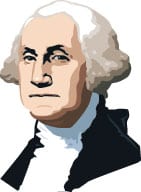 “I think he was someone that really believed in a cause. In his case, the cause was an independent America and he was willing to sacrifice his time and his family’s time to make that happen. He certainly took great personal risks as a general and, again, as president, he sacrificed his time and the rest of his life was dedicated towards the country.
“I think he was someone that really believed in a cause. In his case, the cause was an independent America and he was willing to sacrifice his time and his family’s time to make that happen. He certainly took great personal risks as a general and, again, as president, he sacrificed his time and the rest of his life was dedicated towards the country.
The way he was able to handle power was admirable. The rest of the world thought he was going to become a dictator, and he could’ve, but he didn’t. He didn’t want to be the dictator. He wanted America to be a democracy; he believed in that. I’ve always liked history and I’ve always read about history and been [fascinated] by him pretty much my whole life. If you look at his cabinet, he surrounded himself with people with diverse backgrounds and ideologies and I’ve always listened to people with different viewpoints. I think that kind of mentality as a leader is important: to not just have a bunch of “yes men” but being able to listen to people with different viewpoints.”
Brookhaven Town Supervisor Ed Romaine (R) John F. Kennedy
“Kennedy had a sense of humor, had a sense of history, and he learned from his mistakes. His mistake early in the administration was to follow through with Eisenhower’s decision that he did not execute well, with the Bay of Pigs Invasion, and he learned from that. I think that’s why he was so successful thereafter when, in 1962, a year and a half after, we had the Cuban Missile Crisis, and he was able to diffuse that despite the urging that we invade or bomb Cuba. He avoided that and avoided a crisis and potentially a World War.
I was also extremely impressed with his June 1963 speech at American University about how we all live on one planet and talked about peace being a much nobler goal while we were in the middle of the Cold War and he could see beyond that, so I think he had vision.
Obviously as a person, he had a lot of shortcomings, which a lot of people have dwelled on since the time of his death, but I think as a man and as a leader, people wanted to follow him and I think he was a good president. I knew if he had lived, we would not have been in the Vietnam War. He spoke against getting involved. It was sad to see him go, because in going, the policies changed dramatically, and when we changed leaders, we committed an entire generation to war and turned a lot of people into cynics against their government.
[Inspired by him], I try not to rush to judgment, I try to step back and put things in context and have a sense of history. As someone who has all my degrees in history, I try to put things in context and that helps a lot.”
Legislator William “Doc” Spencer (D-Centerport) – Barack Obama
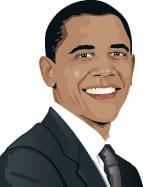 “I’ve been in the Legislature for six years, and got elected in 2011, which was then-president Obama’s third year in office. I had been a physician and I was a big participant in getting involved in the hope and change … Obama being the first Black American president was inspirational for me as one of the few Black American elected officials.
“I’ve been in the Legislature for six years, and got elected in 2011, which was then-president Obama’s third year in office. I had been a physician and I was a big participant in getting involved in the hope and change … Obama being the first Black American president was inspirational for me as one of the few Black American elected officials.
I appreciated the fact that he started out working in the community, was someone that had all the education and training, and was a community organizer. I believe he exhibited the qualities of service and compassion for our fellow man and for those who have the smallest voice, and I believe in hard work and education as well. He had a very clear message that resonated and it got a lot of people involved, and I think that was transformative.
I don’t want it to appear that just because he was black, he encouraged me because I’m black. That had some significance but what I appreciated most was his character. He was a slow and steady hand and he brought qualities of dignity and respect … I also admired the way he conducted himself personally with his family.”
Brookhaven Town Councilwoman Valerie Cartright (D-Port Jefferson) – Barack Obama
“I think Obama, who was a law school professor, intimately understood how to use the law to help others and he actually worked his way up through government, so he took all the steps and is a bottom-up leader. Obama being an activist and community organizer really impressed me. I think it’s important that we [as elected officials] are in the community, and talk to people face-to-face about their issues. I think that he is, arguably, the most eloquent, dignified, and diplomatic president of my time and I try to emulate his qualities.”
Legislator Rob Trotta (R-Fort Salonga) – Ronald Reagan
“He was a fiscally conservative guy who was socially moderate; he would try to save money and have less government … and keep government out of things. That’s what I believe: we shouldn’t be involved in a lot of these things.”
Suffolk County Executive Steve Bellone (D) – Harry S. Truman
“Harry Truman’s my favorite president. He was an ordinary man who did extraordinary things and demonstrated that you can reach the highest levels of our government while maintaining your integrity. More than 20 years ago, I read David McCullough’s book “Truman” and it was one of the best political biographies I’ve ever read. When I served on active duty in the U.S. Army, I was based in Missouri — which is the home state of Truman — and I visited his home and library in Independence.
What was inspiring to me, and it really represents what our country is about, was that anyone can be president and that you can reach the highest levels of our government and really maintain your integrity. Truman’s honesty really impressed me.”
Senator Kenneth LaValle (R-Port Jefferson) – Abraham Lincoln
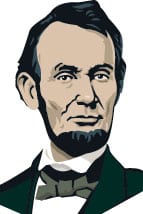 “If you were in my office, whether in Albany or here in the district, you would see lots of pictures of Abraham Lincoln. When you’re growing up and you’re reading about different presidents, the idea of Lincoln being kind of a frontiersman and the way he grew up and the stories about him are very exciting. As you get older and you start looking into Lincoln’s life, you see the kind of person that he is. He cared very deeply about people and if you look at photos of Lincoln, you could see the deep lines, as some people call “worry lines,” because he cared so much. During the Civil War, he visited wounded soldiers and was very touched by their lives.
“If you were in my office, whether in Albany or here in the district, you would see lots of pictures of Abraham Lincoln. When you’re growing up and you’re reading about different presidents, the idea of Lincoln being kind of a frontiersman and the way he grew up and the stories about him are very exciting. As you get older and you start looking into Lincoln’s life, you see the kind of person that he is. He cared very deeply about people and if you look at photos of Lincoln, you could see the deep lines, as some people call “worry lines,” because he cared so much. During the Civil War, he visited wounded soldiers and was very touched by their lives.
I have great concern for people and try to be very helpful to people, and I think Lincoln certainly reinforces those goals.”
Brookhaven Town Councilman Kevin LaValle (R-Selden) – Ronald Reagan
“Reagan was the president I admired most. When you’re an elected official, I think you have to have two great traits: good decision-making skills and the ability to articulate the message you want to get across to people in an effective, understandable and inspiring way, [which he had]. Reagan came into office in 1981, a point in our country’s history where, internationally, we were in the middle of the Cold War, just got done with the Iranian hostage situation, and the economy wasn’t doing well and the morale in the country was at an all-time low — so he had a lot that he was getting ready to take on. He lowered taxes, attacked the problems we had, deregulated the government and opened up the economy, which triggered a boom throughout the decade. He stood up and brought pride back into being American.”
Legislator Leslie Kennedy (R-Nesconset) – Abraham Lincoln
“First of all, he was honest, he truly preserved the unity of our nation and he freed the slaves. He was brought into office during what was probably one of our nation’s first economic crises, and he dealt with the Civil War, dealt with issues of taxation and imports and exports, and handled it in a thoughtful, intellectual way. Those were difficult times and he made our nation what it is.”
Brookhaven Town Councilwoman Jane Bonner (C-Rocky Point) – John F. Kennedy
“His presidency changed America. I think so many presidents bring so many different skillsets, and Kennedy believed in America, was passionate about America, put people to work, held the line on taxes, and was a compassionate person. Then there’s the whole history of Kennedy and how he was raised and groomed, and how his life was tragically cut short, and I think that adds an air to his [legacy] as well.”


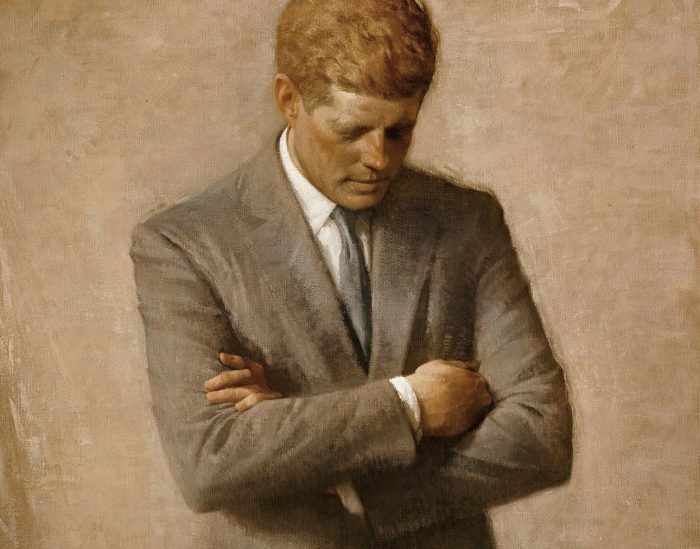
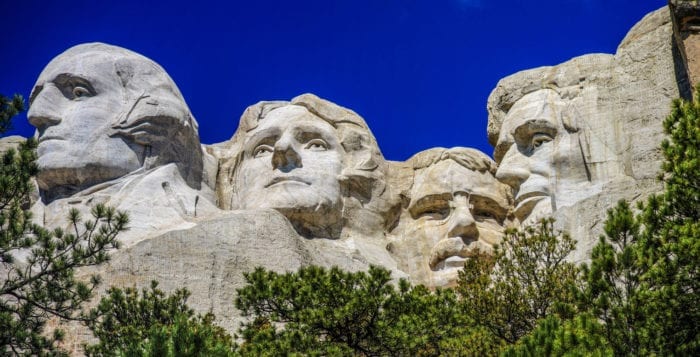
 “I think he was someone that really believed in a cause. In his case, the cause was an independent America and he was willing to sacrifice his time and his family’s time to make that happen. He certainly took great personal risks as a general and, again, as president, he sacrificed his time and the rest of his life was dedicated towards the country.
“I think he was someone that really believed in a cause. In his case, the cause was an independent America and he was willing to sacrifice his time and his family’s time to make that happen. He certainly took great personal risks as a general and, again, as president, he sacrificed his time and the rest of his life was dedicated towards the country. “I’ve been in the Legislature for six years, and got elected in 2011, which was then-president Obama’s third year in office. I had been a physician and I was a big participant in getting involved in the hope and change … Obama being the first Black American president was inspirational for me as one of the few Black American elected officials.
“I’ve been in the Legislature for six years, and got elected in 2011, which was then-president Obama’s third year in office. I had been a physician and I was a big participant in getting involved in the hope and change … Obama being the first Black American president was inspirational for me as one of the few Black American elected officials. “If you were in my office, whether in Albany or here in the district, you would see lots of pictures of Abraham Lincoln. When you’re growing up and you’re reading about different presidents, the idea of Lincoln being kind of a frontiersman and the way he grew up and the stories about him are very exciting. As you get older and you start looking into Lincoln’s life, you see the kind of person that he is. He cared very deeply about people and if you look at photos of Lincoln, you could see the deep lines, as some people call “worry lines,” because he cared so much. During the Civil War, he visited wounded soldiers and was very touched by their lives.
“If you were in my office, whether in Albany or here in the district, you would see lots of pictures of Abraham Lincoln. When you’re growing up and you’re reading about different presidents, the idea of Lincoln being kind of a frontiersman and the way he grew up and the stories about him are very exciting. As you get older and you start looking into Lincoln’s life, you see the kind of person that he is. He cared very deeply about people and if you look at photos of Lincoln, you could see the deep lines, as some people call “worry lines,” because he cared so much. During the Civil War, he visited wounded soldiers and was very touched by their lives.


